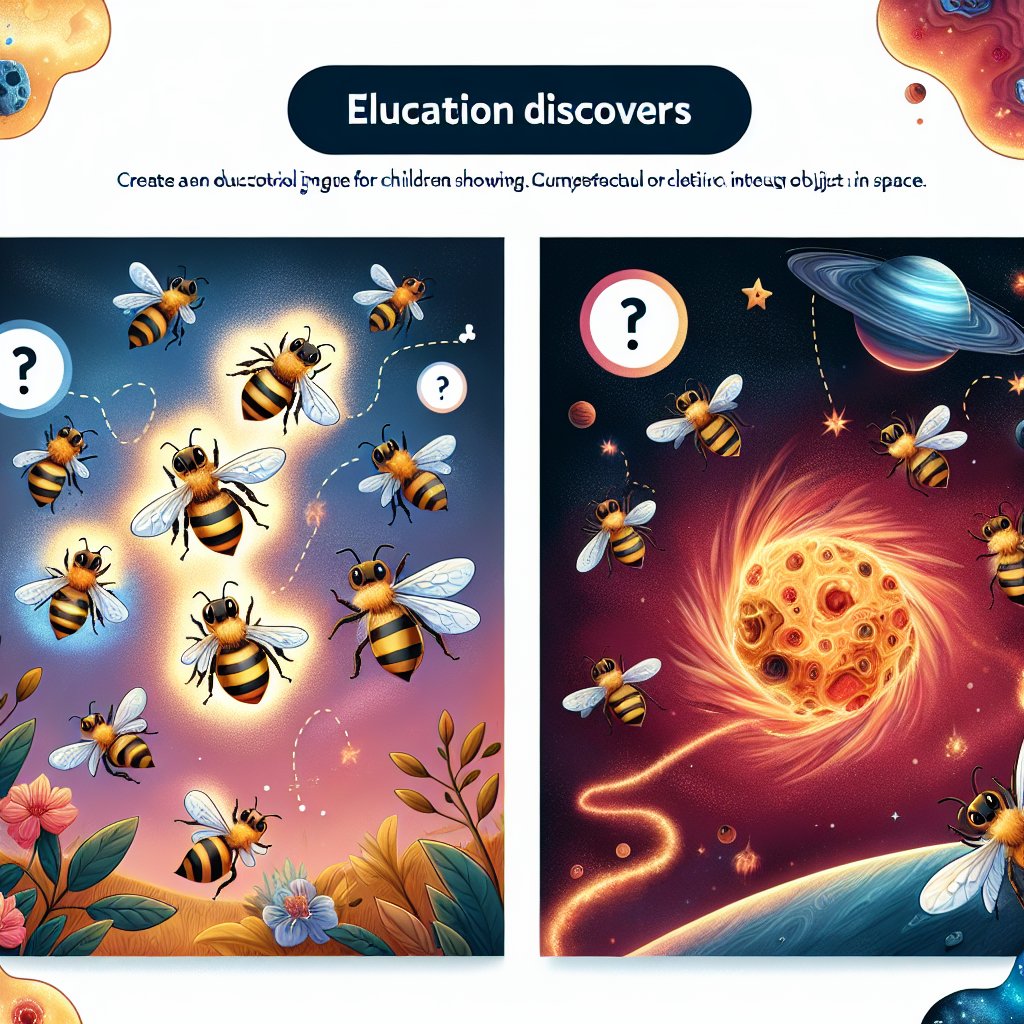23rd August 2025
Recent scientific discoveries are reshaping our understanding of both Earth's smallest creatures and the vast cosmos above. From innovative solutions for protecting vital pollinators to uncovering ancient space mysteries, researchers continue to push the boundaries of human knowledge.
Breakthrough in Bee Conservation In a significant development for bee conservation, scientists have created a revolutionary superfood that can help honeybee colonies grow up to 15 times their original size. Researchers from the University of Oxford developed this nutritional supplement as a response to challenges bees face due to climate change and modern agricultural practices. This concentrated meal supplement could prove crucial in preserving bee populations, which are essential for global agriculture and plant pollination.
Ancient Space Siblings Discovered Astronomers have made a fascinating discovery about certain asteroids in our solar system, identifying them as ancient siblings with a unique "strange fingerprint" dating back billions of years. These celestial bodies, formed during the solar system's early stages, provide valuable insights into our cosmic history. The research suggests that some asteroid types share a common origin, offering a remarkable window into events that occurred over 4 billion years ago.
Unexpected Climate Change Complexity In an ironic twist of environmental science, researchers have found that the healing ozone layer might contribute to increased global warming. Scientists from the University of Reading discovered that ozone recovery, combined with increased air pollution, could lead to 40% more warming than previously estimated. This finding highlights the complex interconnections within Earth's climate system and demonstrates how solving one environmental challenge can unexpectedly impact another.
Evolution's Explosive Nature New research has revealed that Earth's biodiversity emerged through several significant evolutionary explosions rather than gradual changes. Scientists have found that many species, particularly beetles and flowering plants, appeared during brief, intense periods of diversification. This discovery challenges traditional views of evolution and suggests that nature may favor certain templates for rapid diversification.
Space Exploration Debate A growing debate has emerged regarding humanity's future in space. While prominent figures like Elon Musk and Jeff Bezos advocate for space colonization as a means of ensuring human survival, critics are questioning this approach. Recent publications have sparked discussions about the practicality and necessity of human space settlement, prompting important questions about our species' future direction.
Pre-Big Bang Mysteries In a groundbreaking approach to cosmology, scientists are now utilizing supercomputers to investigate what might have existed before the Big Bang. This innovative research challenges the traditional notion that pre-Big Bang conditions are unknowable. Through advanced mathematical modeling and powerful computational simulations, researchers are attempting to unlock new understanding about the universe's origins.
These diverse scientific developments demonstrate the continuing evolution of human knowledge and our persistent drive to understand both our immediate environment and the cosmos at large. As researchers continue to make unexpected discoveries and challenge established theories, our understanding of the natural world continues to expand and evolve.
This article is based on today's episode of KidsNewsFlash, a daily news podcast for kids and families. Listen on Apple Podcasts, Spotify, or wherever you get your podcasts!

